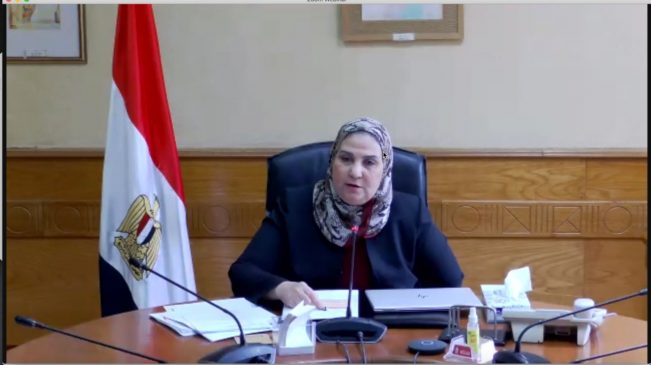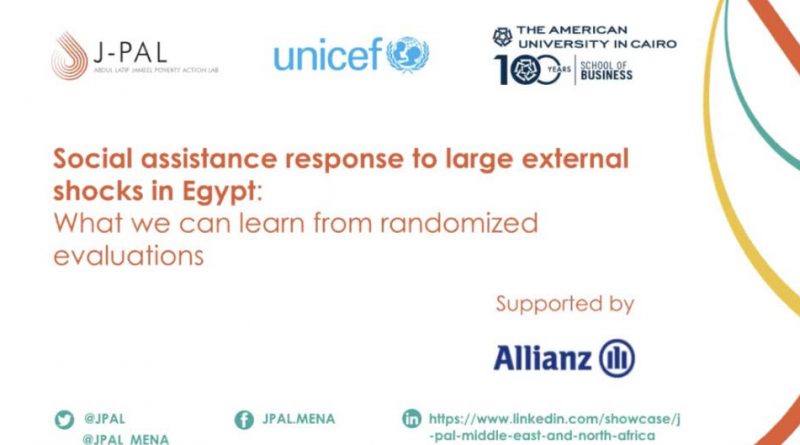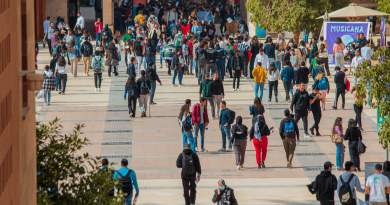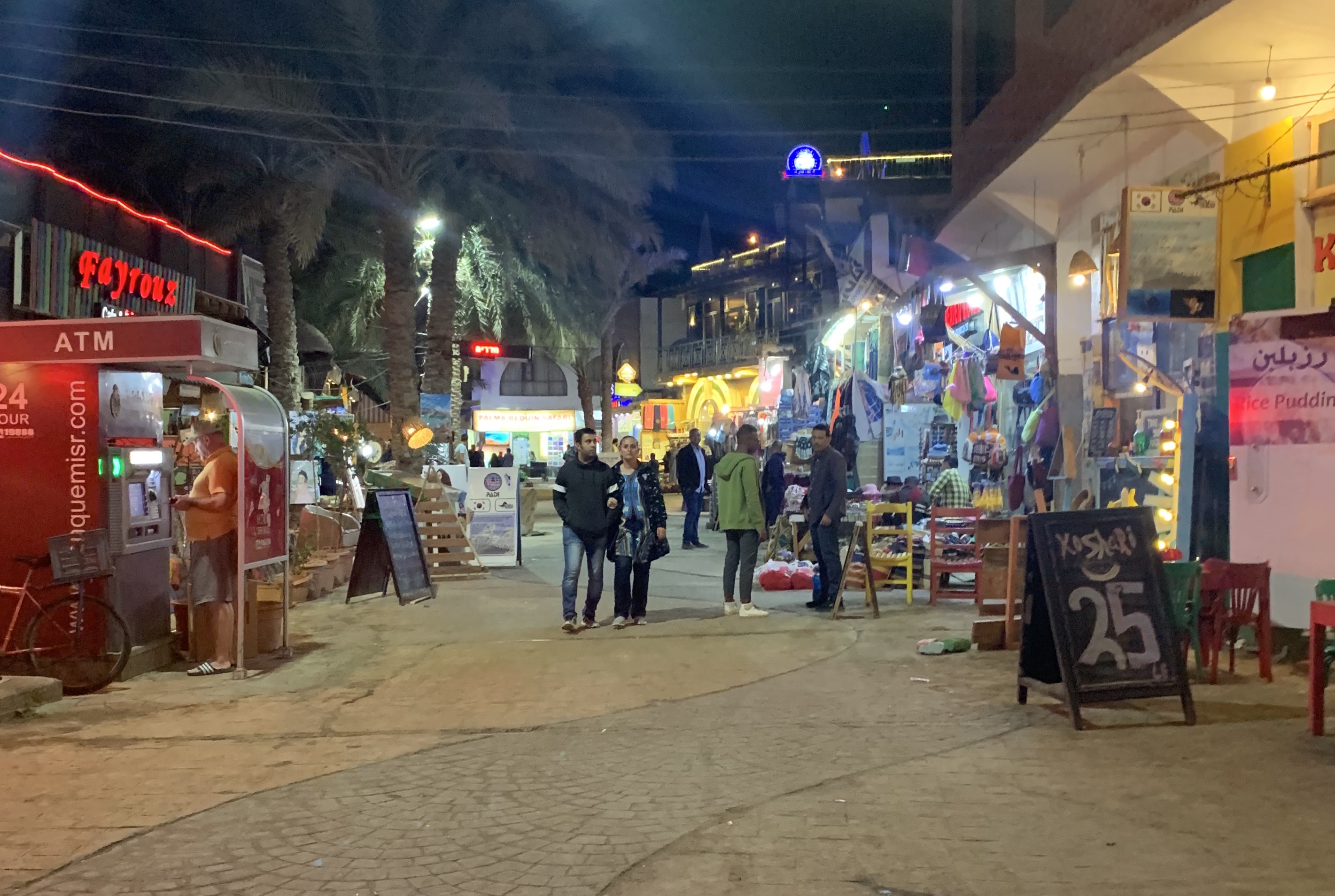Minister of Social Solidarity Spotlights Social Assistance for Women
By: Maya Abouelnasr
@EmEn1125
Minister of Social Solidarity Nivine El-Kabbag told a webinar audience mid-October that Egypt is providing social assistance to women during COVID-19 through accessibility to health services, including family planning.
In the webinar, titled “Social Assistance Response to Large External Shocks in Egypt,” El-Kabbag emphasized how COVID-19 has further limited access to health information and how the ministry has worked to reach vulnerable populations.
“The ministry has recently launched an interactive communication platform in collaboration with UNICEF Egypt, which has enabled us to have a direct communication channel to convey the right information to raise awareness,” El-Kabbag said.
She added that the pandemic has also made access to services, such as family planning, tougher because some women feared leaving their homes and going to health clinics that were overwhelmed with treating COVID-19 patients.
Family planning refers to sitting with experts, namely gynecologists, to discuss the socioeconomic and environmental logistics prior to starting or expanding families, as well as the purchasing of contraceptives.
In an effort to confront the ongoing population boom issue, El-Kabbag shared the joint steps the Ministries of Health and Population (MOHP) and Social Solidarity (MOSS) have taken to increase access to the necessary services during this time.
This included increasing the number of reproductive health clinics from 31 to 64 nationwide to provide more access, as well as opening a helpline to raise awareness on the necessary health information. The ministries have also been distributing tools, food and hygiene kits.
El-Kabbag concluded by calling for reforms to the current governance system, stating that there is an urgent need to be more accessible to vulnerable groups within the society. She also called for making the system less centralized by coordinating with civil society, particularly non-governmental organizations (NGOs), to distribute equal attention on issues affecting diverse populations.

“We realize that not all people have access to knowledge and technology. The current situation opened our eyes that we need to be more accessible not only during but also post-COVID-19,” El-Kabbag said.
On October 7, the World Bank announced that an estimated 150 million people could fall into extreme poverty by 2021 as a result of COVID-19. As such, enhancing social assistance is especially crucial at this time to aid the world’s most vulnerable populations.
Associate Professor in the Social Research Center Hania Sholkamy expressed an urgent need for policy reforms to social assistance programs in Egypt. She also remarked on the areas in which women are most profoundly affected.
“The vulnerability of women is compounded by contextual vulnerabilities, such as economic factors and inflation, unemployment, access to social protection systems, voice and representation, ecological and environmental factors and absence of rule of law,” Sholkamy told The Caravan.
She added that there is an urgent need to reintegrate public health into public policies, as the current centralized assistance programs are not comprehensive or responsive enough to promptly react in times of crises.
Sholkamy also stated that the pandemic has helped expose the harms of the unhealthy norms within the country, which include congested spaces, poor sanitation and limited health information. As such, she believes that health should be a focal point of social assistance.
The Zoom webinar event was part of a four-part Global Evidence for Egypt Spotlight series on assessing and proposing revisions to policies pertaining to major social issues, such as poverty. The event was a collaboration between the United Nations Children’s Fund (UNICEF) in Egypt and the Abdul Latif Jameel Poverty Action Lab (J-PAL) Middle East and North Africa Regional Office/Center at AUC.




